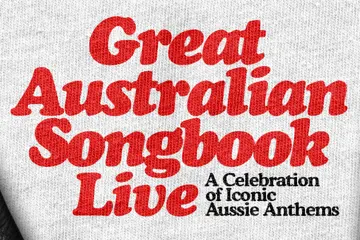 Beck
BeckUS indie folk icon Beck's 2002 album Sea Change was a dramatic change of pace for the singer-songwriter, even by his own chameleon-like standards. An intensely personal suite of string-laden ballads documenting a failed relationship, it was a sombre and relatively organic addition to a catalogue more often used to start parties then to reflect on life's complexities.
Now, a dozen years later, Beck has compiled a new album, Morning Phase, which reunites the same band that worked on Sea Change – chiefly Justin Meldal-Johnsen (bass), Joey Waronker (drums), Smokey Hormel (guitars), multi-instrumentalist Roger Joseph Manning Jr and even his own father David Campbell back arranging the strings – and perfectly captures the ambient feel of its predecessor in the process.
Morning Phase is a mildly conceptual piece that tonally, and often lyrically, is set at the break of dawn, as the doubts harboured by the previous night's darkness start to recede into the recesses of memory. There are still hints of sadness and despair present throughout but these are dwarfed by a more prevailing sense of optimism and hope – in many ways it's the complete antithesis of Sea Change, although both records are united by requisitely strong songwriting and their creator's unabashed sincerity.
“While I was making this record I spent a lot of time trying to step outside of it and look at it from a distance to get a perspective of how {the songs] all fit together,” Beck muses. “I've had a lot of experiences [in the past] where I make a body of songs and at the end just throw them together in sequence, and then you can kind of hear, 'Well these three songs don't really need to be on the record – or they may not fit with all these other ones – but we worked really hard on them and now we're done with the record it's not like we can go back…' So I spent a lot of time being immersed in it and then stepping back.
Don't miss a beat with our FREE daily newsletter
“I had commitments that took me to Paris and London for two months, so I ended up taking my work along with me and I ended up using any time I had free – a free day or a free night – as time to work in the studio on the record, and being over there I think I could view the songs in a different light.”
It's been six years since Beck's last long-player Modern Guilt, and he believes that the production work he did in that intervening time for high calibre contemporaries like Stephen Malkmus, Thurston Moore and Charlotte Gainsbourg really helped him overcome the career doubts which had been plaguing him for years, his conundrum abetted by the serious and debilitating back injury that he'd also been battling for the duration.
“I think it's helpful in just getting on the other side of it, and helping somebody else push that car up the hill,” he smiles. “It's quite an effort making a record, there's a lot of details, but I've spent a lot of time making records – it's what I've dedicated my life to – and I think I've had points where I wonder, 'Well, are you overstaying your welcome? Should I be doing something else now? There's new bands coming in, should I be getting out of the way?' All these things, but I think that I finally realised that I've put tens of thousands of hours into recording and working on songs – this is what I've dedicated my life to – so I thought if anything I can at least help others.
“I've always wanted to be in a band – always wanted to be a part of a group of creative people – and I like that process. A lot of times I've felt kind of alone or isolated creatively – you know, you create a certain kind of individual sound or feeling to the music. And this new record I recorded with the band but 95 per cent [of the time] I was on my own with an engineer. It was crazy, like a long journey into night. A lot of time with nobody there to work off of – it's just you and the music – which has its value, but I think being able to produce other bands or work with other artists is like a vacation from all that introspection and working on your own thing.”
It's hard to believe that someone with such an illustrious career as Beck's behind him would be subject to such an existential dilemma – did the doubts recede after he'd once more created a body of work as beautiful as Morning Phase?
“No, I think it had already receded before I made this record – I don't think I would have made this record if I was feeling that way, you know?” he chuckles. “I think it was really helpful coming to Australia [in 2012] – I hadn't been on a real tour in years, and just coming there when I did, I just felt that I got to step out of things a bit and see that it's just music and that you're just contributing to a conversation that thousands and thousands of people are contributing to, and certain songs find homes in different people's lives.
“And occasionally a song will be the kind of emblematic piece of music for that moment in time – these huge songs which just kind of speak for the moment – but it doesn't have to be about that. I can just kind of be contributing to the whole stream of it.”















